
We kindly inform you that, as long as the subject affiliation of our 300.000+ articles is in progress, you might get unsufficient or no results on your third level or second level search. In this case, please broaden your search criteria.

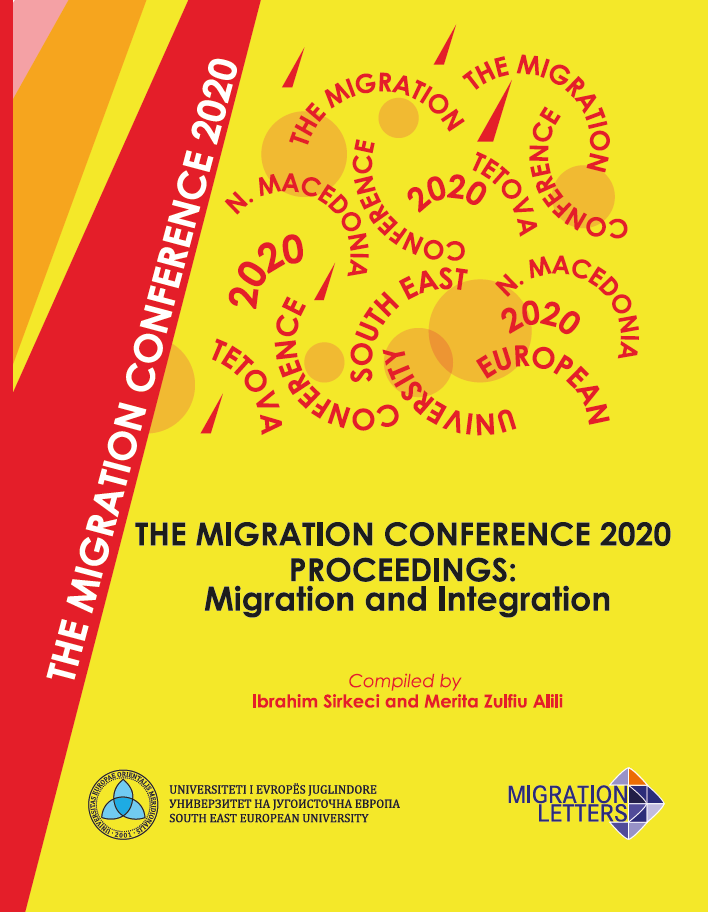
Telling, talking about and writing on experiences of migration, war and flight, means in processto create a space of protection. Also in an inner sense, influencing emotions and feeling of life, or fromthe perspective from outside, watching, what is happening to others: with empathy, migration isunderstood as life changing happening. It is internal sense an from the perspective from outside withempathy a changing event and, communicated with one another, harbors the chance of belonging,placeless and free. When the telling of the others begins, we change and with our imagination reality ischanging.
More...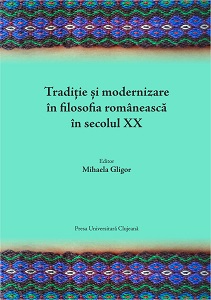
Schopenhauer’s concept of the will-to-life was transformed by one of his main disciples, Philipp Mainländer, in his Philosophy of Redemption (1876) into the will-to-death, preceding Freud’s investigations regarding the death drive in Beyond the Pleasure Principle (1920). The post-Schopenhauerian conception that non-being is preferable to being anticipates Cioran’s discussion of suicide from A Short History of Decay (1949) and his vision of the “catastrophe” of birth from The Trouble with Being Born (1973). If, from a Nietzschean perspective, Cioran’s obsession with death is a symptom of passive nihilism, from an extreme-contemporary perspective, his pessimistic thanatophilia may resonate with our anxious crepuscular mentality, prefiguring contemporary Antinatalism.
More...
Since his work of youth (On the Inner Dialogue) Mihai Şora proposes the act of dialogue as an essential, self-producing state of the human being. Dialogue involves equality in dignity and alterity and the discovery of alterity as a revelation of the world as a structure of potentialities or openings of the me-you type, characterized by reciprocity. The me-you dialogue and the inner dialogue, the communion or the generalized dialogue, are at the same time an ethical commitment of the partners practicing openness and reciprocity, the foundations for freedom and for the awareness of our position in relation to the world. Dialogue produces the occupation of the inner space of the being as voice of the being and at the same time assuming of the outer space as discursiveness, as permanence of acts of being and acting together. Communion as an emotion thus edifies not only the subject participating in the dialogue but also a new entity, the communion itself, an affective perhaps agapic composition. Starting from here, we aim to explore the philosophy of dialogue of Mihai Şora as a theoretical background for a structuring the methodology of a dialogical counselling or philosophical practice aimed at elucidating and relating the subject to the outside world as an autonomous act of the self that is exercised in communion as co-author and giver of meaning.
More...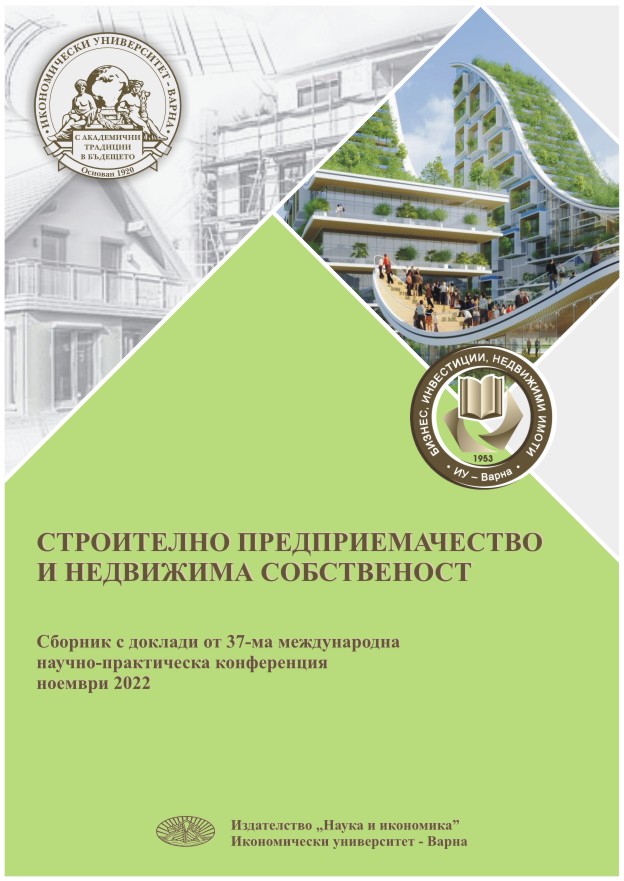
The beginning of the 21st century was faced with the demands of the technical revolution 4, environmental problems and ensuring sustainable development. This situation is caused by the extremely rapid growth of the human population and the enormous use of natural resources. At the same time, over the past three years, the COVID-19 pandemic has slowed down the countries' economic development. To restore countries' economies, Recovery and Sustainability Plans have been proposed. The report aims to show and analyze the challenges facing the construction industry regarding the implementation of the National Development and Sustainability Plan.
More...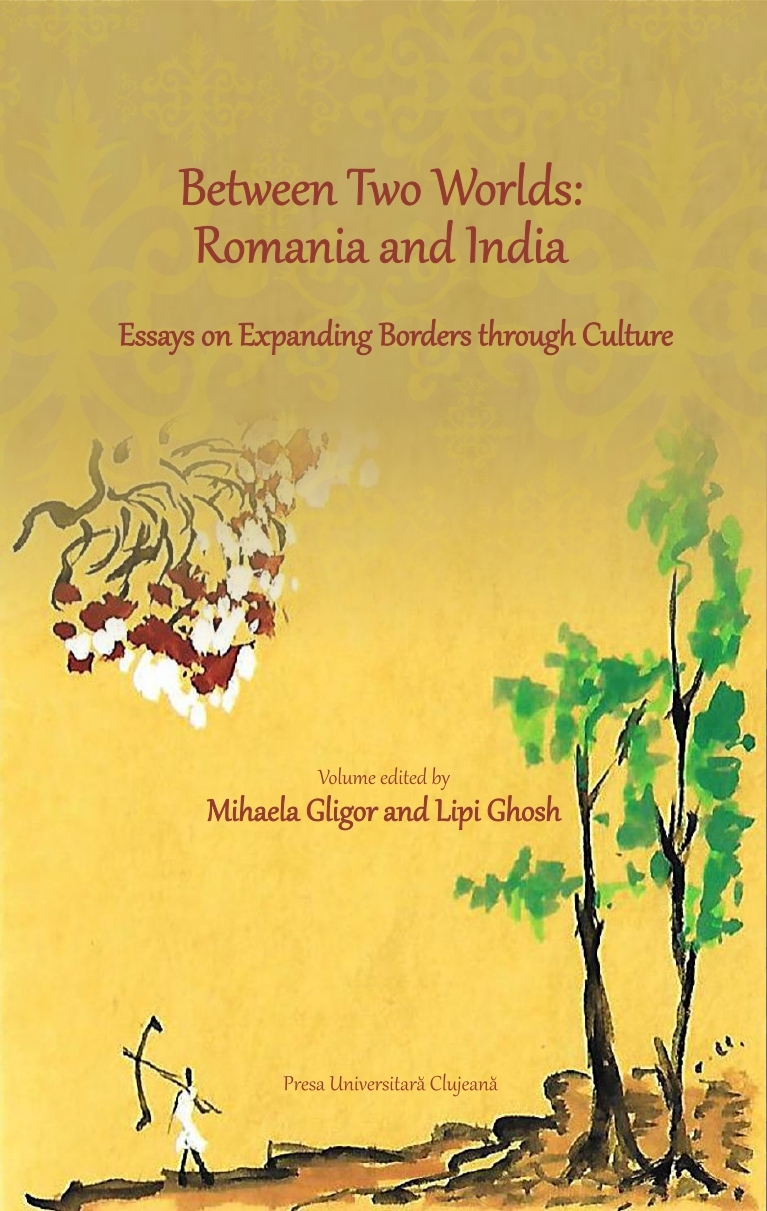
Since the commencement of colonial modernity in India, English, French, and German literature and philosophy have influenced Indian literature. Along with these three major literary spaces, authors also studied new European literature, particularly that of the former USSR republics and small European nations. Translations of literature from Romania, Hungary, Ukraine, the Czech Republic, Finland, Sweden, Denmark, and many more nations have begun to appear frequently in Bengali magazines since the second decade of 20th century. The Bengali literary canon also was being reshaped by such translations and Europe was redefined beyond the established colonial map, as translation appeared as a new cartography. The literary canon of the colonisers was seen as a dominating literary source and the literature of such minor nations was alternative to those. Additionally, Indian minds were attempting to comprehend various European perspectives on World War- I and II at the moment of the shattering of the nations. Amita Bhose, a well-known translator, spent her life translating from Bengali and Sanskrit to Romanian and Romanian into Bengali and created an emotional bond between Romania, her Bengali as well as Indian heritage, and herself. This paper argues Amita Bhose and her works are attached to an emotional bond that causes a translator to find a new home in the world, and a translator may be regarded best as a cultural ambassador. Amita Bhose through her works from and into Bengali and Romanian bridges between two nations and produced a generation of students who essentially become comparatists in various capacities. An international initiative of an individual brought a new dimension in imagining world literature from a particular location and such paradigmatic practices can be argued as an alternative way of doing a non-anglophone, non-canonical literary comparison
More...
Researcher, writer, translator and teacher Amita Bhose (Calcutta, 1933 - Bucharest, 1992) has a special place in the Romanian cultural landscape. Born in Calcutta in 1933, in a family with a rich cultural and scientific activity, she graduated from the Faculty of Chemistry, Physics and Mathematics of the University of Calcutta, in 1953. In 1959, she came to Romania with her husband, a geological engineer, where she enrolled in a two-year Romanian language and literature course. She then returned to India, where she debuted in the Indian press with the article Rabindranath in Romania. It was the beginning of a long series of Bengali and English articles about Romanian culture and literature, from which she also translated. In 1965 she graduated from the Faculty of Bengali-English at the University of Calcutta, and in 1971, the beneficiary of a scholarship from the Romanian state, she enrolled in a PhD programme at the Faculty of Romanian Language and Literature, the University of Bucharest. In 1975 she defended her thesis titled The Indian Influence on the thoughts of Eminescu. From 1971 until her death she lived in Romania, "the country she loved perhaps more than many Romanians did, and served with her intelligence and her pen" (Zoe Dumitrescu-Buşulenga, the scientific advisor of the thesis). In India she published translations into Bengali from contemporary Romanian poetry, from Sadoveanu, Zaharia Stancu and Marin Sorescu, and plays by I.L. Caragiale and Mihail Sebastian were set on stage. In 1969, the volume Eminescu: Kavita (Poems), the first translation of Eminescu in Asia, was published in Bengali.
More...
Professor Surendranath Dasgupta (1887-1952) is probably best remembered as a Philosopher and for his contributions to the historiography of Indian Philosophy. This spirit of philosophical enquiry can also be discovered in his famous works on Yoga and Tantra – knowledge systems which are based in praxis. However, as a thinker, Professor Dasgupta defied all disciplinary boundaries and wrote and lectured on the sciences, literature, art history, aesthetics and so on. Even a cursory look at his teaching career establishes the essentially interdisciplinary nature of his calling: among other things, Dasgupta served as a Professor of Sanskrit and Bengali in Rajshahi and Chittagong College; then taught Bengali at Oxford University; became Professor of Philosophy at Presidency College; then Principal of Sanskrit College; afterwards Professor of Philosophy at the University of Calcutta. He was deeply influenced by poetry, especially Rabindranath Tagore, and many of his essays on philosophy would include Tagore’s poetry as an instance to prove his point or as a moment of epiphany in an otherwise structured argument. Besides these scholarly pursuits, he has also authored poetry collections and novels in Bangla. Dasgupta liked to keep himself informed about the latest developments in World Literature and at times, he even participated in the literary debates that were taking place in the public sphere at that period. Perhaps, his initial training as a student of Sanskrit served as the foundation for this lifelong engagement with languages and literatures. My presentation seeks to locate this literary persona of Professor Dasgupta through a reading of some of his works including Sāhitya Paricay and The History of Sanskrit Literature – in which he worked as an editor and as one of the two contributors. Supplementing these with texts on art and aesthetics by Dasgupta, we seek to understand his way of approaching literature – characteristically comparative; looking for patterns of relationships and connections across time, space, cultures
More...
Born into a socially conservative but intellectually liberal family, Maitreyi was the daughter of scholar-philosopher Surendranath Dasgupta and Himani Madhuri Rai ( sister of Himanshu Rai, owner/ founder of Bombay Talkies). Her early childhood corresponded with the trying years of the First World War while in her youth she was exposed to the political lessons of the Second World War — to fascist Italy, to the Hitlerite regime in Germany, to Stalinist and post-Stalinist Russia, to Republican and communist China — when Maitreyi, was perceived as a left-wing sympathiser. This was the era of the emergence of nation-states, of obsessive nationalism and revolts against hegemonic and capitalist forces. As an intimate protégée of Rabindranath Tagore, wherever she travelled, to China, Russia, Eastern and Western Europe, she practised the transnationalism that marked out the travelogues of Tagore. This meant that both colonial perceptions and the nation-state centric approach were disrupted by discourses of inter-connectedness that in turn challenged conceptual boundaries of difference and ethnicity
More...
Maitreyi wrote books of philosophy and also travel books. For Na Hanyate (It Does not Die), the reply-novel to Mircea Eliade’s story, Maitreyi Devi received, in 1976, the Sahitya Akademi Award, the most important distinction from the Academy of Indian Letters. She was invited to give lectures on life and works of her dear friend and mentor, the Nobel laureate Rabindranath Tagore, or on Indian philosophy and culture, all over the world. She also had a special role in the emancipation of Indian women. Marked by the drama of children left on the roads as a result of territorial divisions and political struggles, Maitreyi Devi set up an orphanage and attracted significant funds for educating and empowering young people in disadvantaged environments.
More...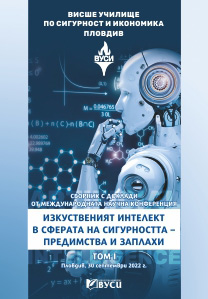
Investigating threats related to financial security to minimize and eliminate the negative impacts and encroachments of fraud attempts on people, businesses, the state and the EU are current security issues and challenges. The Internet has become a hyper-attractive place for criminals, as they often use tricks and promises to obtain money or valuable banking information. The techniques and tactics used are increasingly innovative and difficult to detect and deserve a thorough review in order to protect potential victims of bank fraud from threats. In this direction is the application of the unlimited possibilities of artificial intelligence.
More...
The report aims to present the advantage of using the innovative approach to human resource management through emotional intelligence (EI). The applicability of EI in organizations in different social spheres in crisis situations is increasingly demonstrating its importance. There is still uncertainty in clarifying some key theoretical constructs in this direction, which in the report is part of the conceptual focus. On the basis of the theoretical clarification of the main characteristics of EI, some ideas have been presented, allowing for better approbation of these approaches in the practice of modern organizations in the context of effective crisis management. The authors argue that knowledge of EI and its active application in human resources management can lead to higher efficiency and motivation of employees to get out of the spiral of crises and abrupt changes of a different nature.
More...
The emergence and development of new information and communication technologies has opened up vast opportunities for people to communicate, create and distribute content through multiple services and platforms, exercising their rights on and off the Internet. They have become the new center of attraction for active information exchange due to their accessibility, sense of community and understanding between its members. The direct communication is both the advantage and the disadvantage of this type of media. Along with their indisputable advantages, their main disadvantage was also discovered - the possibility of being used as a means of disinformation among the public and subsequent manipulation through the spread of so-called „fake news“. This article examines the possibilities of using artificial intelligence systems as a tool in the fight against fake news, summarizing scientific research on the subject. At the same time, the issue of the risks of using artificial intelligence systems to freedom of speech is also discussed.
More...
Artificial intelligence can create texts on a set topic, and similar software products are used by media around the world, as well as by companies that want to create content faster and for less money. Such programs can become a dangerous weapon of misinformation at the hands of people spreading news with false or misleading content, and fake news is becoming an increasingly serious security issue.
More...
This report looks at the possibilities for the application of artificial intelligence in the tax control carried out by the National Revenue Agency and the impact on tax security.
More...
Modern technologies and mechanisms of communication through them are occurring at a rapid pace in the field of healthcare. This definitely leads to taking strict measures to strengthen the protection of the data used and protect it from cyber attacks. More and more medical institutions use various technologies to communicate with their patients, as well as to store medical information and documentation, in compliance with all regulatory requirements for non-violation of human rights. In recent years, hospitals have increasingly relied on modern artificial intelligence systems to facilitate their day-to-day medical and administrative practice, while also taking care to prevent any violations of patients' rights.
More...
The report examines the correlation and impact of artificial intelligence on ambient air. Basic principles are laid down in this type of methodology. Attention has also been paid to the impact of dirty air on human health. Different modes of action for a more sustainable and environmentally friendly urban environment are being considered.
More...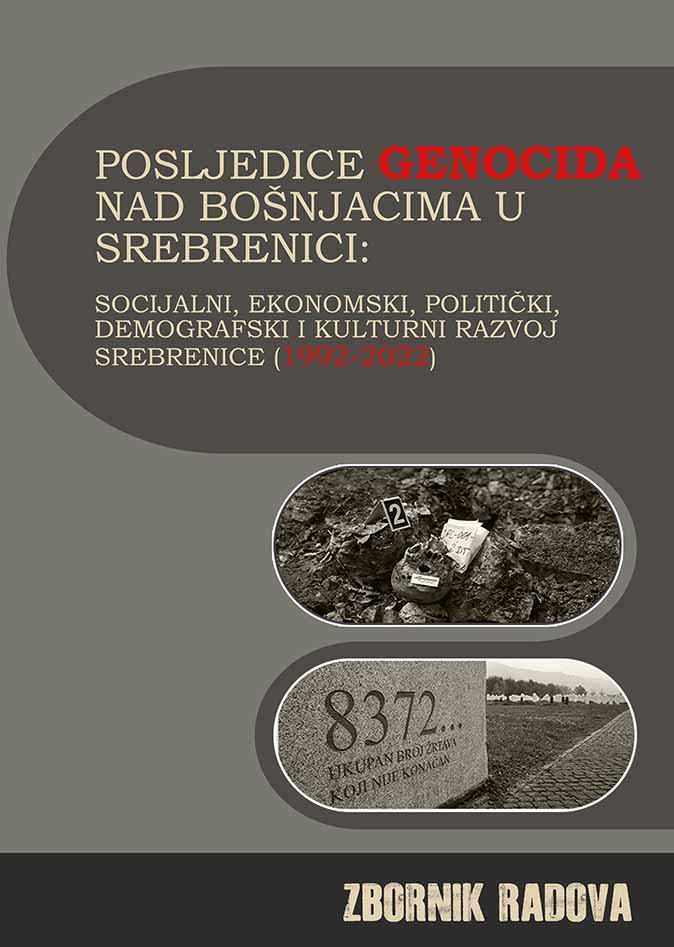
Introductory remarks by: - Prof. Ph.D. Rifat Škrijelj, rector of the University of Sarajevo - Prof. Ph.D. Dženeta Omerdić, Presidency of Bosnia and Herzegovina (Office of Dr. Denis Bećirević) - Prof. Ph.D. Denis Zvizdić, Deputy Speaker of the House of Representatives of the Parliamentary Assembly of Bosnia and Herzegovina - Ph.D. Pavle Krstić, Minister (Ministry of Higher Education, Science and Youth of Sarajevo Canton) - Ph.D. Husein-ef. Kavazovića, reisul-ulema (Islamic community in Bosnia and Herzegovina) - Academician, prof. Ph.D. Mirko Pejanović (President of the Scientific Committee of the Conference of the Academy of Sciences and Arts of Bosnia and Herzegovina) - Ćamil Duraković (Vice President of the RS entity) - Prof. Ph.D. Rasim Muratović, Director of the Institute for Research of Crimes Against Humanity and International Law, University of Sarajevo - Ph.D. Sc. Sedad Bešlija, director of the Institute of History
More...
Moralno-pravna i politička obaveza svijeta i Evropske unije i Bosne i Hercegovine jeste ne samo spriječiti buduće, civilizacijski katastrofične zločine poput genocida nad Bošnjacima u Srebrenici i oko nje nego, i prije svega, spriječiti njegovo planski aktivno i politički, medijski, kvazinaučno, sistematsko poricanje i negiranje. Tome svjedočimo danas i svih poratnih godina u Bosni i Hercegovini i njenom susjedstvu. Umjesto odgovornosti za nesprečavanje genocida, u Srbiji se i dalje veličaju ratni zločinci koji su doveli do izvršenja genocida. Upornim i neskrivenim javnim veličanjem zločina i međunarodno presuđenih ratnih zločinaca, praveći od njih nacionalne heroje s jedne, i stigmatiziranjem kritičkoga govora i priznavanja genocida od strane grupacija ili pojedinaca u njihovom javnom angažmanu na tu temu, s druge strane, ohrabruju se politike i zagovornici opetovanja genocidnog zla i njegovo javno, nekažnjeno, stadionsko i medijsko veličanje, poput transparenata tokom utakmica na kojima se zanavlja napis: Nož, žica, Srebrenica.
More...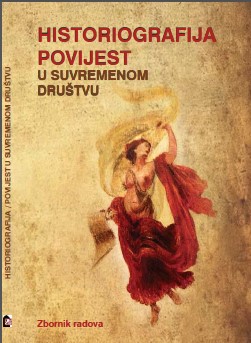
After the collapse of the second Yugoslavia all the official bonds that Croatian historiography had with other former Yugoslav historiographies were broken. Still, the cooperation among historians was soon renewed, especially between Croatian and Serbian historians through participation on the international scholarly conferences called Dijalog povjesničara / istoričara (Dialogue among historians) organized by Foundation Friedrich Naumann. During eight years (1998-2005) the foundation organized 10 conferences, and published the conference proceedings. These conferences managed to gather 165 participants (from twelve different countries), who delivered their papers and worked in the form of workgroups. The most important part of these conferences is the fact that they were organized without any political influence, though many participants emphasized idea of international and internal reconciliation project. However, this reconciliation does not include political reconciliation but only reconciliation with the past. Throughout the years, these conferences showed that historians from both countries can cooperate and exchange ideas without any significant problem but only in the framework of a scholarly dialogue.
More...